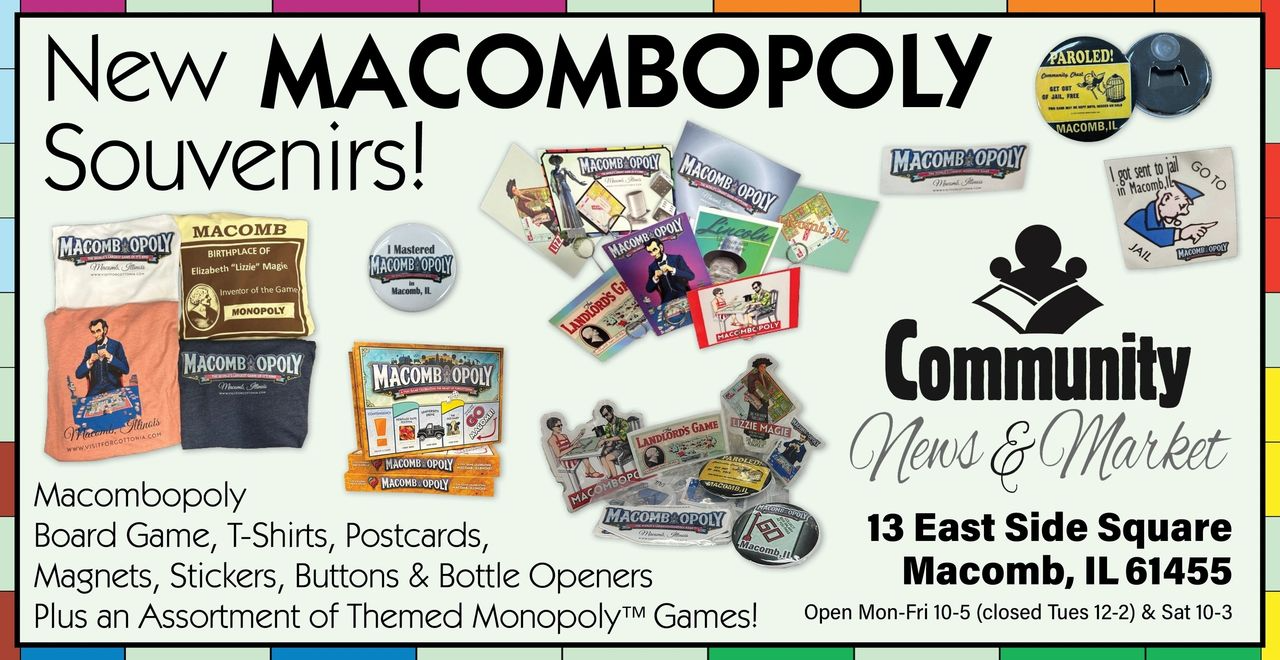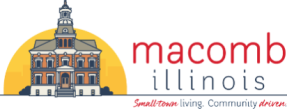Women-owned businesses are a major economic force in the U.S., with over 12 million firms employing nearly 13 million people and generating trillions in revenue. October marks National Women in Small Business Month, and the Community News Brief is proud to feature numerous women who own and/or lead small businesses within the region.
To commemorate 2025's National Women in Small Business Month, the Brief contacted nearly 20 business owners, operators and/or leaders. Those who responded will be shared in upcoming issues.
How long have you been with Wesley Village?
I began my career at Wesley Village March 15, 1999, as director of finance.
In May 2003, I was promoted to administrator, and I've been honored to serve as CEO ever since.
What is your business’ specialty or focus?
Wesley Village is a Life Plan Community offering a full continuum of care for seniors, from independent homes and apartments to short-term rehabilitation, long-term care, memory care and in-home services. My personal focus has always been on financial stewardship, strategic planning and ensuring that our residents receive compassionate, quality care. I'm a licensed Nursing Home Administrator with a lifelong love for numbers, financial statements, and spreadsheets— balanced with a healthy dose of common sense.
Why did you choose this line of work?
When I first joined Wesley Village as director of finance, I immediately fell in love with the residents and the mission. That experience inspired me to pursue my Nursing Home Administrator's license, which I successfully earned in 2002.
Since then, my passion has been to make a meaningful difference in the lives of older adults and their families.
What did you do before joining Wesley Village?
My first job was at Hardee's in Macomb, where I started as a teller at age 16.
I continued to work with the company through high school and college, and after graduation, I relocated to Florida for three years to assist with the opening of new Hardee's restaurants from Bradenton to Tampa.
During my time there, I was promoted from teller to supervisor and eventually to assistant manager. That early experience taught me the importance of teamwork, customer service and leadership at every level.
After returning to Illinois, I spent 12 years as an accountant for Ward Crop Service in Blandinsville, a family-owned agricultural input business. That experience grounded me in practical business operations, financial management, and the importance of community relationships.
How did you learn this field?
To prepare for licensure, I completed five online courses through the College of DuPage in Long-Term Care Administration. Those classes, along with hands-on experience in finance and operations, provided a strong foundation to successfully pass the state and national Nursing Home Administrator exams.
What do you enjoy most about leading Wesley Village? What are the biggest challenges?
The greatest joy of my job is helping seniors and their families navigate the continuum of care we offer, ensuring their retirement years are filled with dignity, comfort and purpose. I've often said this is a 'feel-good' job; our residents deeply appreciate even the smallest gestures, and that gratitude is incredibly rewarding.
Our growth over the years has been remarkable. Wesley Estates, our independent living community, was added in 2005 and now includes 36 homes, with more under development. Beginning in 2015, we introduced the 'household model' of care, transforming our health center into four beautiful, home-like households. This model has made Wesley Village a leader in person- centered, long-term care in Illinois.
Our biggest challenge continues to be financial sustainability. Rising costs, complex payer systems like Medicare, Medicare Advantage and Medicaid, and staffing pressures make it difficult to achieve a positive bottom line. Nearly 70% of our operating budget supports our employees—salaries, payroll taxes, and benefits—which are essential to delivering quality resident care. Donor support plays a vital role in sustaining our mission.
How do you set yourself apart as a leader?
I believe in leading by example. Over the years, I've been hands-on in nearly every aspect of campus operation, from hanging wallpaper and painting to cooking in the kitchen, serving meals, working as a CNA and tackling landscaping projects. I've also served as the interior designer on most of our renovation projects, selecting colors, furniture and décor. Our team has completed hundreds of projects together, transforming Wesley Village into the vibrant, welcoming community it is today. I learned early on how to read building plans, sifting through endless regulations and staying abreast of the latest trends in senior living.
What are your goals for the future?
When I retire, my goal is to leave Wesley Village in stronger financial and operational condition than when I arrived in 1999, positioned to thrive for decades to come.
What advice would you give to women aspiring to leadership roles?
Have passion for the organization you lead.
Leadership isn't always easy, and perseverance matters.
Over my 26 years at Wesley Village, there were times when challenges could have made it easy to give up—but dedication, hard work, strategic thinking, and a commitment to the mission saw us through. Success comes from resilience, integrity, and a willingness to roll up your sleeves when needed.
Humane Society of McDonough County (HSMC): Bonnie Smith Skripps, president How long have you been involved in the organization, and in what roles?
I have been a member of the HSMC since the mid-1990s and a volunteer dog walker at the shelter for the last 15 years. I served as the HSMC secretary for a few years before becoming president in 2014. Through 2023 I coordinated the low cost spay/neuter transport program to address the cat overpopulation problem in the county. My role as president includes leading the campaign to raise funds needed to build a new county animal shelter.
What is your org's specialty/ focus?
The HSMC is an all-volunteer charitable organization. Members of the HSMC are committed to ensuring that every adoptable shelter animal finds its forever home -- a home where he/she will be treated as a valued member of the family and gets the love and attention deserved. The Humane Society promotes the adoption of animals at the shelter, raises funds for their special medical needs, provides education to the community on pet care, and assists families in financial distress to keep their pets in their homes.
Why do you do what you do?
I have a passion for animals and for their health and welfare. It's greatly rewarding to see shelter dogs and cats become comfortable and more confident. To help a scared, shy dog overcome her fears and see her wag her tail excitedly when you go to her kennel to get her out for a walk. To feel a cat relax in your arms and seek your attention. To watch young dogs chasing each other and playing together in the outdoor pens or kittens playing together and chasing toys.
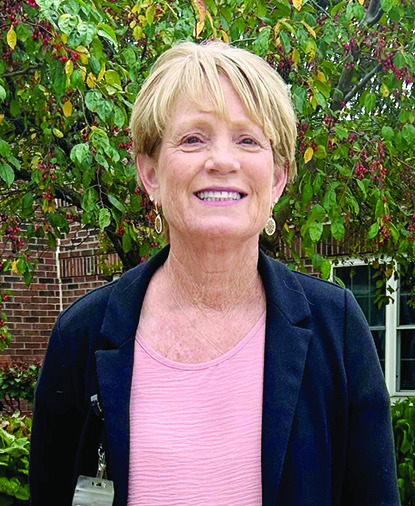
Wesley Village: Shelly Martin, CEO/ administrator, 1200 E. Grant St.
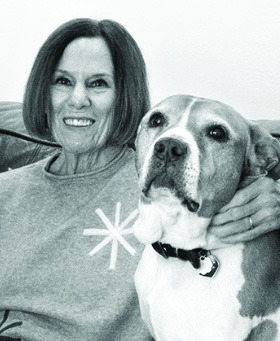
Or to sit outside on a bench with a dog who just wants to be held and reassured, and to feel him relax. These times when they can relax and let down their guard are critical to helping abandoned or abused animals overcome past troubles and fears. And then comes the very happy day when they are adopted and go home with their new family or companion. We so much want adoption to work out for each animal, and this can be stressful. It's so important that adopters find a pet of the right age, size, energy level, and temperament for their life style and environment. Puppies and kittens are cuter than cute, but require much work, attention, and patience. And it's important that the adopters give their new pet time to adjust and become part of the household. It's devastating when we see dogs or cats returned after less than a week of being in their new supposedly forever home.
The HSMC tries to reinforce the need to make rational decisions about adopting.
I believe people benefit enormously from having pets in their lives. Research has shown that individuals with pet companions are physically and emotionally healthier than those who do not. Pets are an important component in healthy child development and a healthy family environment.
Senior citizens also benefit from having a cat or dog in their lives. Pets are not only good companions for older people, who are often living alone, but it’s been shown that they improve a senior's health, both physically and mentally.
What did you do before you were part of the HS/ doing this work more 'full time?' After serving in various roles in the WIU College of Education and Human Services (COEHS), I was dean of the College from 2002-2009. As dean, I was responsible for the overall leadership and management of 13 departments serving over 5200 undergraduate and graduate students at that time. I began my career at WIU teaching freshman composition in the English Department.
How did you learn to lead this organization and do what you do?
Having a team of experienced board members in place when I assumed the HSMC leadership position helped a lot. I learned the intricacies of leading a not-for-profit, all volunteer organization and how to stretch our capacity to tackle new objectives. My previous work on state and federal grants provided insights into how to think differently and move forward. While at WIU I was fortunate to work with a couple of very influential role models who served as mentors.
What's your favorite thing about leading this org, and why?
As president of HSMC, I am blessed to work with a great board of directors and have made invaluable connections within the community – those who donate, provide foster care, and help with our Pet Food Pantry and the cat overpopulation problem. So many are committed to helping needy animals and to building a 21st century animal shelter for our county.
A personal benefit from doing animal rescue is the connections made with fellow animal lovers. It's so nice to hear from people about how well their new dog fit into the family or to receive pictures of a recently adopted cat lounging in their new home, or cuddled up with the kids. And then there are the close friends I have made with volunteers and staff at the shelter. We are joined by our commitment to seeing that these individual dogs and cats have the opportunity to find their new home and family.
Biggest challenge(s)?
Time is the biggest challenge – time to accomplish everything we want and need to do. Many of our members and volunteers are still employed at regular jobs. Our events, fundraisers, and shelter commitments all take a lot of planning, time, and energy.
A big challenge is seeing how many young dogs end up being dumped at the shelter. Their owners don’t want them or can’t handle them once they grow out of the cute puppy stage and are too much trouble. Often this occurs because the dogs haven't been given the attention, love and training necessary to become a well-functioning pet. With patience and training we try to help the dogs figure this out so they can find, and be successful in their forever homes. They deserve that opportunity for a second chance. And this takes lots of patience, perseverance and time. The same is true of cats.
It's also very challenging and sad to see older, infirm pets dropped off at the shelter, or to see confused and depressed pets that have had a home and a family end up at the shelter because of their owner’; death or health issues, or because of the financial duress in which the family finds itself.
Goals for the org?
Besides helping all adoptable shelter animals find their homes and providing educational opportunities to ensure quality pet ownership, our immediate goal is for the new animal shelter to be built and operational.
The new shelter will be a welcoming place to go find a new family member, to volunteer, and to find the resources to be a good pet caretaker. A new shelter will provide more opportunity for dogs and cats to find homes and to live lives of comfort and connection – whether it is in the prime of their lives or as a final chapter surrounded by love and care. And for community members, it’s the opportunity to experience the magic and healing powers of having a pet with whom to share their lives.
Advice to women who want to be in a leadership role in an organization?
Step up; don’t be afraid to try.
Build a strong network of people who share your interests and passions.
Recognize the strengths of people in your organization and build on those strengths. Partner to get things done. Don’t think you can do it all yourself.
Learn from others; seek information and best practices.
Celebrate your successes and realize you cannot solve all problems or issues.
Make time to care for yourself and your personal life.
How long have you owned and/or operated your business?
Since 2001.
What is your business’ specialty or focus?
Bar/restaurant.
Why did you choose this line of work?
I've been a waitress forever! I started working at the Pub in 1997 when Mike Carper and Dennis Moon owned it. Dennis sold his part in 2001, and then Mike and I were partners until he passed away in 2011.
What do you enjoy most about owning the Pub?
I love the people that I've met over the years and a lot of the customers are more like family to me and the staff.
Did you feel you were treated differently as a female bar owner?
No, I've never felt I've been treated different being a woman business owner.
What are your goals for the future?
My goal is to keep the business open. Some days it's harder than others, but that's with anything in life.
I couldn't do it without my staff and the great customers that support us. They are wonderful.
regional museum deeply rewarding. My background in nonprofit work, along with teaching K–12 art education and college-level studio arts, has given me a strong foundation for creating the kinds of experiential learning opportunities that museums offer. I’ve realized that my exhibition design and grant-writing skills come from my own fine arts practice. Even my time as a restaurant manager has proven useful in organizing the Museum’s events. In many ways, the museum profession found me.
What’s your favorite thing about leading this business, and why?
I am passionate about the arts and humanities, believing that when approached thoughtfully and creatively, they can be transformative for both individuals and communities. I find it deeply rewarding to collaborate with others to preserve our history and build trusting relationships, enabling us to share our stories with a wider audience.
Biggest challenge(s)?
As a growing organization, we need the capacity to develop new programs and exhibits that keep us relevant to our community. This requires aligning resources, such as staff time dedicated to planning and executing programs, with the financial support needed to sustain both existing and new initiatives. In short, it’s a balancing act of allocating time and securing funding.
Biggest Successes?
I feel a sense of satisfaction when the Museum comes alive, when people engage with a program or discover a piece of history that resonates with them. It’s those collective experiences that can help someone see themselves and their community in a new way that I count as a success. It might be children laughing, a room full of people enjoying live music, or hearing someone share a story from their life.
While I can point to renovation projects as tangible successes, the focus has always been on creating a space where our community can come together around shared experiences.
Goals for your work?
At the Museum, we aim to create a “light bulb moment” when a visitors see the world from a new perspective. We also strive to inspire a deeper appreciation for the arts and humanities, both in people’s everyday lives and in the life of our community.
Advice to women who want to be in a leadership role in an organization?
Consider how the unique combination of your experiences and perspective gives you a distinct ability to contribute to your chosen work. Don’t simply follow, but bring your own voice and approach. Working from that place is far more rewarding, and over time, its value will become increasingly clear. It helps to never stop learning and to stay curious about the world around you
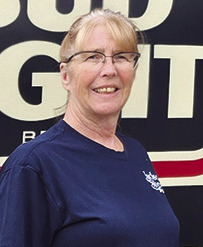
Jackson Street Pub: Carol Livermore, owner, 835 W. Jackson St.
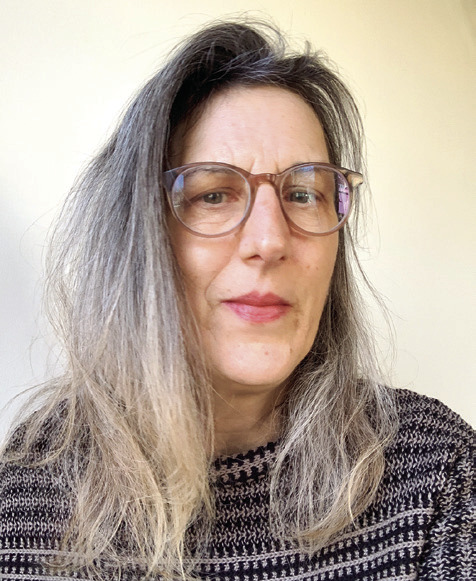
How long have you been in your current position? In 2008, I was hired as the part-time curator and became the full-time Director in 2012. I have been with the Western Illinois Museum for 17 years. Explain what all your position entails In addition to overseeing the Museum’s day-to-day operations, I research and install exhibitions and, together with a part-time program manager, plan and present more than 70 programs each year. I work closely with a team of volunteers and a part-time collections manager who oversees the care of the Museum’s collection. I also write and manage grants and collaborate with the Museum’s Board of Directors and Advisory Council to develop strategies and raise funds for initiatives that advance the Museum’s mission and vision for serving the community. Why this line of work for you? I value lifelong learning, and museums provide the perfect setting for both educational and hands-on experiences. I enjoy having a variety of responsibilities and working with different groups of people; it makes for an ideal work environment. Being part of a smaller organization allows my staff and me to stay flexible and quickly respond to community needs that align with our mission. What did you do before you were at your current place of employment? Before moving to Macomb, I worked for a nonprofit in New York City called Independent Curators International (ICI), which developed traveling art exhibitions with guest curators. Its mission was to make contemporary art accessible to museums and galleries. We were essentially a museum without a building. The experience was an excellent training ground for understanding how to run a mission-driven nonprofit. Seeing exhibitions that used art to interpret current issues and reflect the world around us gave me valuable insight into the powerful impact a museum experience can have. How did you learn this trade/business? I was fortunate to be hired by the Museum’s board when I moved to Macomb, as it allowed me to bring together many of the skills from my previous professional experiences. This has made running a small Sue Scott, Executive Director of the Western Illinois Museum 201 S Lafayette St, Macomb,




